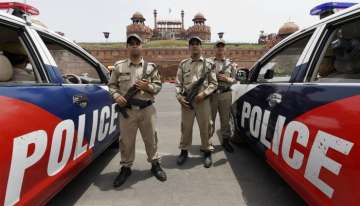Senior Delhi Police officers feel the number of cases transferred from district police to special units such as Crime Branch and Special Cell has been on a rise due to several reasons, including the district police being in a hurry to wash their hands off sensitive cases.
The officers claim the special units receive cases local officials want to put into "cold storage".
An officer posted at the district level however disagreed, and said, "The investigating officers in the special units usually write things, send it to their seniors for approval, who then make their remarks, which takes time.
"But in districts, the communication is faster and there is not much movement of files which sometimes creates the impression that the special units are dumping grounds," he added.
A senior officer posted in one of the special units said the DCPs are in a hurry to transfer sensitive cases from districts to special units and sometimes move a plea for transfer within hours. The officer felt there is a lack of a sense of accountability."Earlier the deputy commissioners of police (DCPs) would fight if the senior officers asked them to seek transfer of even sensitive cases to Special Cell or Crime Branch, but now the DCPs themselves move files requesting transfer of the cases. For instance, the Umar Khalid attack case was transferred to the Special Cell the next day itself," he said.
JNU student leader Khalid was attacked on August 13, when he was on his way to participate in an event at Constitution Club in New Delhi. He escaped unhurt.
Another officer, posted in a district, however, said the local police is overburdened.
"The primary job of local police is to maintain law and order and keep a track of the incidents happening in the area.
"Also, the lower-ranked officials are burdened with several cases at a time and if senior officers feel a case requires in-depth investigation, they move the file for transfer of the case," he said.
Citing the Burari case, in which 11 people were found dead under mysterious circumstances at their home on July 1 in the north Delhi neighbourhood, he explained that the case required an in-depth probe as to what drove the members of a prosperous family to embrace death in such a way.
Sometimes cases are transferred to special units even after the local police has made arrests since the complainants are not satisfied with the probe or if the case is very sensitive.
The case in which a female flight attendant allegedly committed suicide by jumping off the terrace of her house in south Delhi's Panchsheel Park, was transferred to the Crime Branch after her husband was arrested by the local police because her family was not satisfied with the probe, said a senior officer with the Crime Branch.
"Any case which has implications on the law and order of the district or where there are allegations on the local police being partial towards one party is transferred.
"The districts have special units called the District Investigations Units. Sometimes, the cases are also transferred to them but if the complainant is not satisfied, the next logical step is to send the case to the special units, since they are considered 'independent units'," said an officer.
An officer, who had been posted with the Special Cell, the Crime Branch and also at the district level, said, sometimes if there are cross cases and both the parties are accusing the police of being partial towards the other, the best way to pacify the situation is to transfer the case.
He concurred with his fellow officer about the district police being overburdened and said, "Mostly, during daytime, the sub-inspectors are in the court for the hearing of their cases and after spending the day in the court, they are sent for patrolling duty or some other work. There is not much time for carrying out quality investigation."
Latest India News
